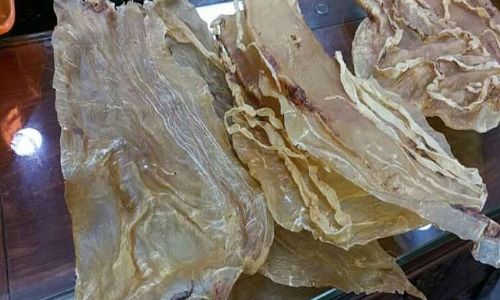China prosecutes 11 people in $119 million totoaba fish bust

Chinese authorities have prosecuted 11 people for smuggling USD 119 million worth of Mexican totoaba fish swim bladders, one of the countrys biggest busts related to the trafficking of an endangered species used in traditional medicine
Beijing: Chinese authorities have prosecuted 11 people for smuggling USD 119 million worth of Mexican totoaba fish swim bladders, one of the country's biggest busts related to the trafficking of an endangered species used in traditional medicine.
Mexico has urged China for years to crack down on totoaba smuggling over fears that illegal fishing operations in the Gulf of California are also killing off the world's smallest porpoise, the near-extinct vaquita marina. The Jiangmen city procuratorate in southern Guangdong province said the 11 people are suspected of smuggling nearly 20,000 swim bladders worth more than 800 million yuan ($119 million) from Mexico.
The group of smugglers, led by an individual named Liang Weihua, transported the fish parts in "large quantities" and sold them to consumers in China. "This crime lasted for more than three years," said the Guangdong-based procuratorate, a legal supervision agency, on its website. The smuggling route involved a number of neighbouring countries, including Cambodia, Laos, and Vietnam, it said, adding that the case is currently under further investigation.
The critically endangered totoaba fish has been in steep decline since the 1940s, largely because of its reputed healing powers in Chinese medicine. The fish's swim bladder can fetch up to $20,000 on the black market in China, where it is believed to have beautifying properties and cure a host of ailments, from arthritis pain to discomfort during pregnancy. In fact, they are so prized that some Chinese simply display them in fancy cases in their homes.
The Mexican navy and environmentalists patrol the Gulf of California to detect illegal fishing. Environmental group Sea Shepherd said its sea patrols were attacked this earlier this year, with one ship getting hit with rocks and firebombs thrown by dozens of people in 20 boats in February. The nets are believed to claim a collateral victim, the vaquita marina, which like the totoaba is endemic to the Gulf of California and is near extinction. Though China has made efforts to crack down on the sale of illegal wildlife products, smuggling continues as demand is still fuelled by a thriving black market.
Pangolin populations, for instance, have been ravaged by a surge in demand, particularly in mainland China, and are one of the most heavily trafficked mammals in the world. Last month, Hong Kong officials unveiled a record eight tonnes of pangolin scales found in a container from Nigeria, as the timid animal continues to be sought after for its meat and unproven medicinal properties. In November, China said it postponed a controversial decision to partially lift a 1993 ban on trading tiger bones and rhinoceros horns, following criticism from conservationists likening the decision to signing a death warrant for the endangered species.











